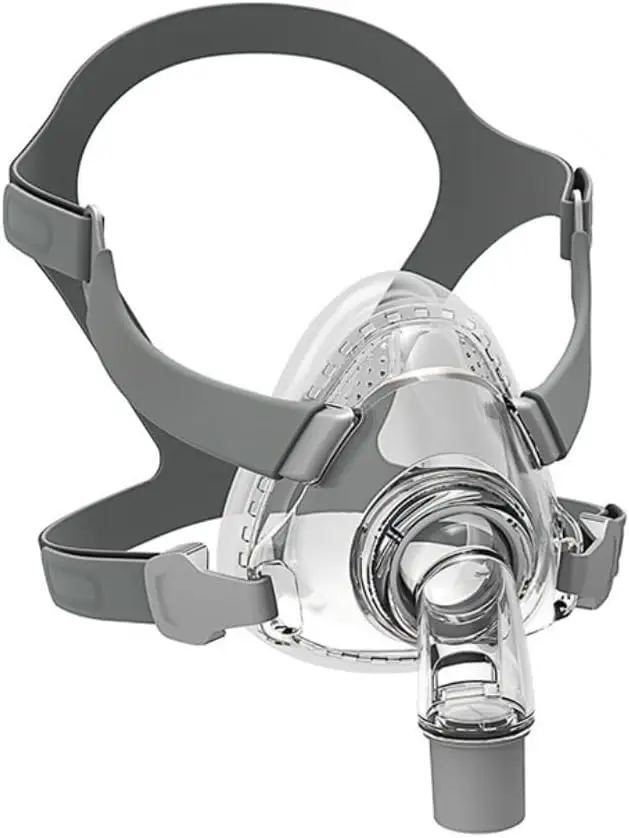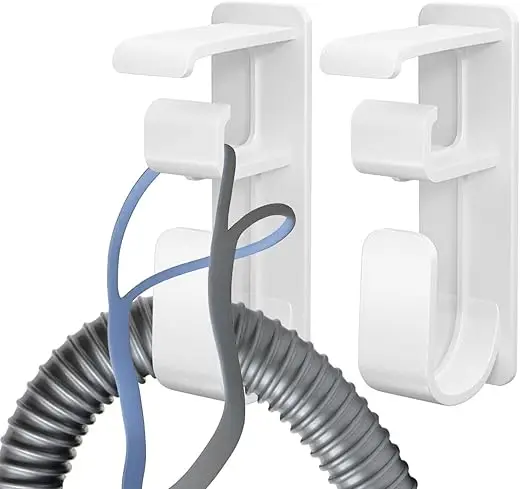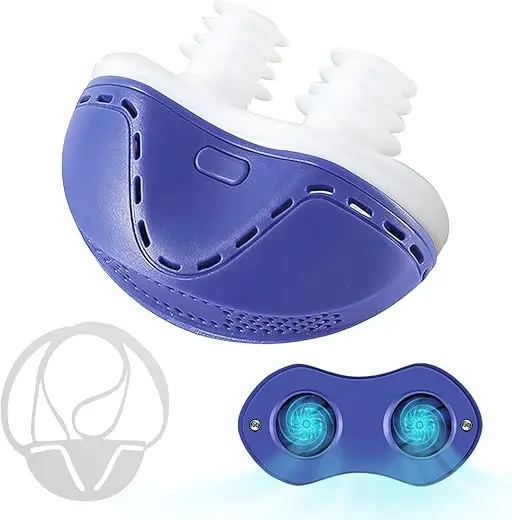Essential CPAP Supplies for Successful Sleep Apnea Treatment
Starting CPAP therapy involves more than just purchasing a machine and mask. To maintain effective, hygienic, and comfortable treatment, you’ll need to regularly replace various components and may want to invest in accessories that enhance your therapy experience. This comprehensive guide covers everything you need to know about CPAP supplies, replacement schedules, costs, and where to find the best deals.
Understanding Essential vs. Optional CPAP Supplies
Essential CPAP Supplies
These components are required for your CPAP machine to function safely and effectively:
CPAP Machine Components:
- Air filters (disposable and reusable)
- Humidifier water chamber
- Power cord and adapters
- SD card (for data tracking)
Mask Components:
- Mask cushions or nasal pillows
- Mask frame
- Headgear and straps
- Elbow connectors
Tubing and Connections:
- CPAP hose/tubing
- Heated tubing (if applicable)
- Tube connectors and couplers
Optional CPAP Supplies
These accessories can improve comfort and convenience:
Comfort Accessories:
- Mask liners and padding
- Chin straps
- CPAP pillows
- Tube management systems
- Heated humidification
Travel and Convenience:
- Travel CPAP cases
- Portable batteries
- Distilled water containers
- Hose covers and wraps
Cleaning and Maintenance:
- CPAP cleaning wipes
- Mask cleaners
- Sanitizing systems
- Drying racks
Complete CPAP Replacement Schedule
Daily and Weekly Maintenance
Daily:
- Empty and refill humidifier water chamber with distilled water
- Wipe down mask with CPAP wipes
- Check for air leaks or visible wear
Weekly:
- Hand wash mask cushion, headgear, and humidifier chamber
- Clean CPAP hose with warm soapy water
- Allow all components to air dry completely
Monthly and Quarterly Replacements
Monthly Replacements:
- Disposable Air Filters: Replace every 30 days or sooner if visibly dirty
- Mask Cushions/Nasal Pillows: Replace every 2-4 weeks for optimal seal
Quarterly Replacements (Every 3 Months):
- Complete CPAP Mask: Full mask replacement including frame and headgear
- Reusable Air Filters: Clean or replace depending on manufacturer guidelines
- Humidifier Water Chamber: Replace to prevent mineral buildup
Semi-Annual and Annual Replacements
Every 6 Months:
- CPAP Hose/Tubing: Standard and heated tubing replacement
- Headgear and Straps: Replace worn or stretched components
- Mask Frame: If showing signs of wear or cracking
Annually:
- Humidifier Unit: Complete humidifier replacement
- Machine Inspection: Professional servicing and calibration
Every 5 Years:
- CPAP Machine: Complete machine replacement under most insurance plans
CPAP Supply Costs: What to Expect
Machine and Major Components
CPAP Machines:
- Basic Models: $500-$800
- Mid-Range Auto-Adjusting: $800-$1,200
- Premium Models with Advanced Features: $1,200-$2,000
- Travel CPAP Machines: $400-$1,500
Complete Masks:
- Nasal Pillows: $70-$150
- Nasal Masks: $100-$200
- Full Face Masks: $120-$250
- Total Face Masks: $200-$400
Replacement Supplies
Essential Components:
- Mask Cushions: $15-$40
- Disposable Filters: $1-$3 each (usually sold in packs)
- Reusable Filters: $5-$15 each
- CPAP Hose: $15-$50
- Heated Tubing: $40-$80
- Water Chamber: $25-$50
- Headgear: $20-$60
Optional Accessories:
- Mask Liners: $15-$25 (30-day supply)
- Chin Straps: $10-$30
- CPAP Pillows: $50-$150
- Travel Cases: $30-$100
- Portable Batteries: $200-$600
Annual Supply Costs
Typical Annual Replacement Costs:
- Masks (4 per year): $280-$800
- Cushions (12-24 per year): $180-$480
- Filters (12 disposable): $12-$36
- Tubing (2 per year): $30-$100
- Water Chamber (4 per year): $100-$200
Total Annual Supply Costs: $600-$1,600
Insurance Coverage for CPAP Supplies
Medicare Coverage (2025 Guidelines)
What Medicare Covers:
- CPAP machines (rental-to-own over 13 months)
- Masks and cushions
- Tubing and hoses
- Filters and accessories
- Humidifiers and water chambers
Your Costs with Medicare:
- Annual Part B Deductible: $257 (2025)
- 20% coinsurance after deductible
- Example: $1,000 machine = $200 out-of-pocket (after deductible)
Medicare Replacement Schedule:
- Masks: Every 3 months
- Cushions: Every month
- Filters: Monthly (disposable)
- Tubing: Every 3 months
- Water Chambers: Every 6 months
Private Insurance Coverage
Typical Coverage:
- 80-100% of approved amounts
- Requires Medicare-enrolled providers
- Pre-authorization may be required
- Specific replacement schedules vary
Factors Affecting Coverage:
- Plan type and benefits
- In-network vs. out-of-network providers
- Medical necessity documentation
- Compliance with therapy requirements
Ways to Reduce Costs
Insurance Optimization:
- Use Medicare-enrolled suppliers
- Follow prescribed replacement schedules
- Maintain therapy compliance
- Keep detailed medical records
Alternative Payment Options:
- Flexible Spending Accounts (FSA)
- Health Savings Accounts (HSA)
- Manufacturer discount programs
- Subscribe & Save programs
- Bulk purchasing discounts
Where to Buy CPAP Supplies
Online CPAP Retailers
CPAP.com
- Advantages: Extensive selection, expert reviews, 30-day mask trials
- Special Features: Subscribe & Save discounts, price protection guarantee
- Popular Products: ResMed AirSense machines, complete starter bundles
- Shipping: Free shipping on orders over $99
The CPAP Shop
- Advantages: Competitive pricing, mask fit technology, travel specialists
- Special Features: 30-day returns, 7-day price matching, financing options
- Popular Products: Travel CPAP machines, comfort accessories
- Customer Service: Expert guidance and troubleshooting support
SleepApnea.org Partners
- Advantages: Educational resources, product comparisons, expert reviews
- Special Features: Insurance verification, prescription management
- Focus Areas: New patient education, therapy optimization
Lofta
- Advantages: Integrated testing and supply services, sleep coaching
- Special Features: Home sleep testing, personalized therapy support
- Popular Products: WatchPAT testing, complete treatment packages
Local Medical Equipment Providers
Durable Medical Equipment (DME) Suppliers
- Advantages: Face-to-face service, immediate pickup, insurance billing
- Services: Mask fitting, equipment training, troubleshooting
- Considerations: Limited selection, higher prices, appointment requirements
Sleep Centers and Clinics
- Advantages: Professional fitting, integrated care, warranty service
- Services: Follow-up appointments, therapy adjustments, compliance monitoring
- Considerations: Convenience vs. cost considerations
Pharmacy Chains
National Pharmacy Chains
- Available At: CVS, Walgreens, Rite Aid
- Advantages: Convenient locations, insurance billing, basic supplies
- Limitations: Limited selection, higher prices, minimal expertise
Choosing the Right Supplier
Key Factors to Consider
Accreditation and Certification:
- Medicare enrollment status
- ACHC or Joint Commission accreditation
- State licensing and compliance
- Better Business Bureau ratings
Product Selection:
- Brand variety and availability
- Latest model accessibility
- Prescription vs. non-prescription items
- International shipping capabilities
Customer Service:
- Expert product knowledge
- Insurance verification assistance
- Technical support availability
- Return and exchange policies
Pricing and Value:
- Competitive pricing structures
- Insurance acceptance and billing
- Discount programs and promotions
- Bulk purchase options
Questions to Ask Suppliers
Before Purchasing:
- Are you Medicare-enrolled and accredited?
- What is your return and exchange policy?
- Do you offer insurance billing and verification?
- What customer support is available?
- Do you provide equipment training and setup?
- What warranty coverage is included?
For Ongoing Supply Needs:
- Do you offer subscription or auto-delivery services?
- What discounts are available for regular customers?
- How do you handle insurance claims and billing?
- What is your replacement supply schedule?
- Do you provide compliance monitoring and reporting?
Prescription Requirements
What Requires a Prescription
Prescription Required:
- CPAP machines
- BiPAP/APAP machines
- Complete masks (full assemblies)
- Humidifier units
No Prescription Required:
- Mask cushions and replacement parts
- Headgear and straps
- Tubing and hoses
- Filters and accessories
- Cleaning supplies and wipes
Prescription Management
Getting Prescriptions:
- Sleep study results required
- Sleep specialist or primary care physician
- Prescription updates for machine changes
- Insurance pre-authorization coordination
Prescription Maintenance:
- Annual prescription renewals
- Supplier verification requirements
- Insurance compliance documentation
- Medical necessity updates
Tips for Maximizing Your CPAP Supply Investment
Maintenance Best Practices
Daily Care:
- Use only distilled water in humidifiers
- Clean masks and cushions regularly
- Store equipment in clean, dry locations
- Monitor for wear and replacement needs
Preventive Measures:
- Follow manufacturer cleaning guidelines
- Replace supplies on schedule
- Avoid harsh chemicals and cleaning agents
- Store backup supplies for emergencies
Cost-Saving Strategies
Smart Shopping:
- Compare prices across multiple suppliers
- Take advantage of seasonal sales and promotions
- Consider generic or compatible alternatives
- Buy in bulk when appropriate
Subscription Services:
- Set up automatic deliveries for regular supplies
- Take advantage of subscription discounts
- Ensure deliveries align with replacement schedules
- Monitor usage to adjust delivery frequency
Insurance Optimization:
- Understand your specific coverage benefits
- Use in-network providers when possible
- Keep detailed therapy compliance records
- Work with suppliers who handle insurance billing
Troubleshooting Common Supply Issues
Mask Fit and Comfort Problems
Air Leaks:
- Check cushion wear and replacement needs
- Verify proper mask size and fit
- Adjust headgear tension appropriately
- Consider alternative mask styles
Skin Irritation:
- Use mask liners or padding
- Check for allergic reactions to materials
- Ensure proper cleaning and maintenance
- Consider hypoallergenic alternatives
Equipment Performance Issues
Reduced Therapy Effectiveness:
- Check filter cleanliness and replacement needs
- Verify water chamber cleanliness
- Inspect tubing for blockages or damage
- Monitor pressure settings and calibration
Noise and Comfort Problems:
- Replace worn or damaged components
- Check for loose connections
- Consider heated tubing for condensation
- Use sound dampening accessories
Future Trends in CPAP Supplies
Technology Innovations
Smart Connectivity:
- App-integrated monitoring
- Remote compliance tracking
- Automatic reorder systems
- Real-time therapy optimization
Material Advances:
- Hypoallergenic cushion materials
- Antimicrobial surface treatments
- Lighter, more durable components
- Eco-friendly disposable options
Market Trends
Direct-to-Consumer Growth:
- Streamlined online ordering
- Subscription-based supply services
- Telehealth integration
- Patient education platforms
Cost Reduction Initiatives:
- Generic and compatible alternatives
- Bulk purchasing programs
- Insurance optimization tools
- Government pricing negotiations
Key Takeaways
- Regular replacement of CPAP supplies is essential for effective therapy
- Insurance coverage can significantly reduce out-of-pocket costs
- Online retailers often offer better selection and pricing than local stores
- Prescription requirements vary by component type
- Proper maintenance extends supply life and reduces replacement frequency
- Subscription services can simplify supply management and reduce costs
- Medicare-enrolled suppliers are required for insurance coverage
- 30-day mask trials help ensure proper fit and comfort
Successfully managing your CPAP supplies requires understanding replacement schedules, finding reliable suppliers, maximizing insurance benefits, and maintaining proper equipment care. With the right approach, you can ensure effective therapy while minimizing costs and maximizing convenience.
This guide is for educational purposes only. Always consult with your healthcare provider and follow manufacturer guidelines for your specific equipment.



